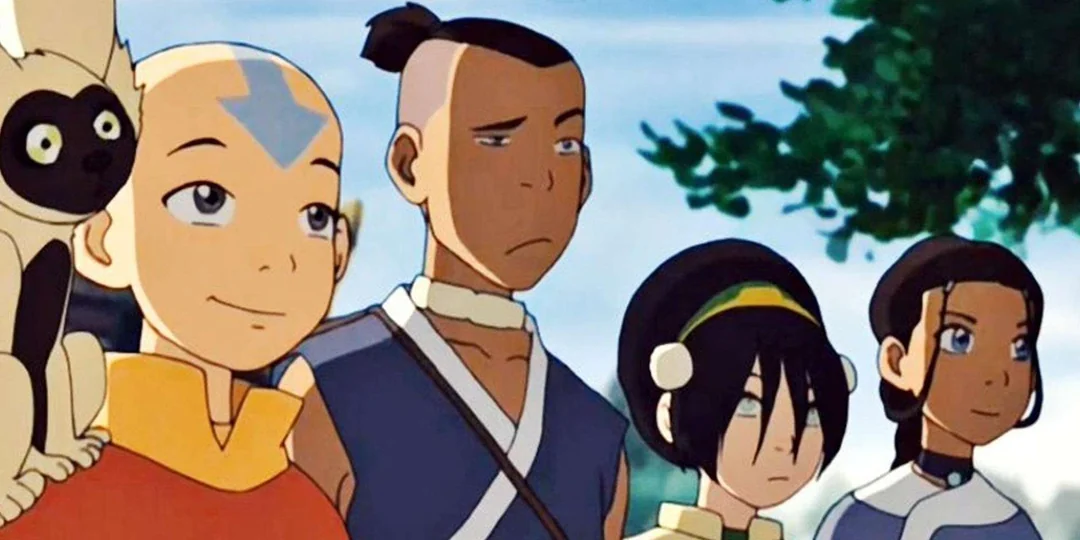Is Avatar: The Last Airbender Family Friendly?
Sometimes, a piece of media comes out that deeply divides the homeschool community. A movie, program, or book series is released that half the homeschool community lauds and the other half thinks is spiritually dangerous. There are books and articles written pro and con, some arguing that the media is wholesome while others claim it is morally subversive.
Today, a similar controversy exists around the television program Avatar: The Last Airbender. Again. Some homeschool families enthusiastically endorse it as a fabulous piece of children’s programming, while others have banned their children from watching it. I thought a post exploring the show could be helpful. Whether you support or oppose it, it is good to have all the information!
What is Avatar: The Last Airbender?
Avatar: The Last Airbender is an animated series originally aired on Nickelodeon between 2005 and 2008. Though it has been off the air for fifteen years, its popularity has only grown over time. It is one of the most viewed and commercially successful animated programs of the early 21st century. The series has been perennially popular with audiences. As late as 2020, twelve years after it went off the air, Avatar: The Last Airbender was the most-watched show on Netflix.
Critical reviews are also gushing—it has maintained a steady 100% on Rotten Tomatoes for years. Screen Rant called it “one of the greatest cartoons ever made,” and the popular entertainment media review website IGN calls it “one of the greatest animated series of all time.” Its popularity is often attributed to its complex characters, simple yet engaging plot, and rich world-building. Its voice-acting, music, and animation quality have also been singled out for praise.
Who is Avatar’s Intended Audience?
Avatar: The Last Airbender was intended for children. However, its popularity has expanded beyond its intended demographic. While Avatar‘s characters, colorful world, and simple plot are accessible to children, its depth of character development and the show’s dealing with complex themes have also made it popular with adults. Avatar: The Last Airbender is a program that families can watch together, and everyone can get something out of it.
What is the Avatar: The Last Airbender About?
Avatar: The Last Airbender takes place in a fantasy world with a generalized Asiatic setting. The cultures and landscapes evoke images of classical China, Japan, Tibet, and Vietnam, among others. Its world’s populace is divided into four “tribes” associated with the four fundamental elements (earth, wind, water, fire). Certain people are gifted with an ability known as “bending,” which allows them to manipulate a given element telekinetically; e.g., water benders can manipulate water, fire benders can manipulate fire, etc. The abilities of the Benders are based on real-world martial arts. In-world, they function as extensions of martial arts abilities. Martial arts enthusiasts will recognize the various schools of martial arts reflected in the bending (Muay Thai, Wing Chung, etc.)
While the four tribes have traditionally existed in harmony, the Fire Lord, Ozai, has embarked upon a campaign of imperialist expansion to subdue all the other tribes to his own. Balance can only be restored by a character known as the Avatar, a Bender who can control all four elements and possesses the shared memories and experiences of all previous Avatars. The Avatar is Aang, an Airbender, the show’s titular character and protagonist. Together with his flying bison and a group of friends he meets along the way, Aang must master the four elements to defeat Ozai and restore peace to the world.
What Themes are Explored in Avatar: The Last Airbender?
Avatar: The Last Airbender deals with an astonishing breadth of themes. Some are socio-political, such as imperialism, totalitarianism, indoctrination, war, and conflict of cultures. Others are interpersonal, such as forgiveness, loss, friendship, and coming-of-age themes. The thematic elements of Avatar can be serious, but it knows its audience and never crosses the line into “cover your kids’ eyes” intensity.
The serious themes and intense moments are balanced by endearing humor sprinkled throughout. Nor are there any objectionable elements in Avatar: The Last Airbender from a moral perspective. Because the protagonists are all young people, there is some teen angst, relationship drama, and a kiss exchanged now and then, but it is all handled well. The show’s protagonists, though working through common human flaws, are wholesome characters who consistently behave morally and model healthy relationships.
Is Avatar: The Last Airbender Anime?
One common misconception about Avatar: The Last Airbender is that it is anime. “Anime” is a term that denotes animation produced in Japan and created according to certain stylistic features and aesthetics. Avatar: The Last Airbender is not anime. Its creators—Michael Dante DiMartino and Bryan Konietzko—are Americans, and the series was produced in the United States and is owned by Nickelodeon. The confusion probably arises from the show’s oriental setting, leading some to assume it must be an anime. DiMartino and Konietzko have stated that the program was originally conceived as an homage to the kung fu genre and oriental culture in general, but it is certainly not anime.
As an aside, I would also like to note that anime is not inherently bad. Anime is not a genre; it is simply a style of filmmaking. There is good anime and bad anime. In an age when Western media increasingly sacrifices substance for shallow CGI spectacle, many Japanese studios continue to turn out high-quality, beautifully produced, compelling stories year after year. Some of my favorite films of all time are anime.
Does Avatar: The Last Airbender Promote Eastern Mysticism/New Age Spirituality?
Avatar: The Last Airbender takes place in a setting loosely based on Asian culture. As such, the ethos and worldview of Asia are assumed; e.g., Aang’s order of Airbenders look like Buddhist monks, Aang “meditates” to clear his mind, and there is talk of channeling energy, and things of that nature.
While Avatar assumes these realities as part of its fantasy world, it does not “promote” them any more than Greek mythology “promotes” paganism. Greek myths are set in pagan Greece and hence assume pagan beliefs as part of their worldview, and the world of Avatar: The Last Airbender assumes certain ideas common to the East in its storytelling. In my opinion, however, these are minimal. There are no gods. The characters do not pray. There is no “religion” beyond displays of simple folk belief that exist to give depth to the world-building. Aang occasionally meditates to contact previous Avatars, whose memories and experiences he has access to, but this is a special prerogative of Aang by virtue of his special status.
Families have different levels of tolerance for programming that incorporates beliefs derived from non-Christian spiritualities. Avatar: The Last Airbender is mild in this regard compared to many other films and programs, but it does still contain elements that are not overtly Christian.
Does Avatar: The Last Airbender Have Anything to Do with the Blue People Avatar Films?
A year after Avatar: The Last Airbender went off the air, filmmaker James Cameron released his science fiction epic Avatar, also known as “the movie about the blue aliens.” James Cameron’s Avatar has absolutely no connection with Avatar: The Last Airbender—none whatsoever.
It is unfortunate the two are often confused. James Cameron’s Avatar movie is a prime example of a film that does push New Age spirituality and eco-worship. Fortunately, Avatar: The Last Airbender has nothing to do with James Cameron’s blue aliens. It is an unhappy coincidence that the two are mixed up.
Is Avatar: The Last Airbender Right for My Kids?
You know what is best for your family and have the final say in what programming your children watch. If the information above makes you unsure if it is good for your kids, but they’re asking to see it, watch an episode or two yourself before saying yes or no.
For me personally, I like Avatar: The Last Airbender so much that I bought the boxed set. It is a perennial favorite in my household, one of the few programs everyone of any age can watch and enjoy together. I agree with the critical assessment that it is probably one of the best-animated series ever made—and it is incredibly wholesome.
It’s difficult to find good programming these days, so I think it is worth it to highlight things that stand out. I personally recommend giving it a shot. Also, I’d like to give a special shout-out to my student Raphael for encouraging me to explore this subject.
Incidentally, the popularity of Avatar: The Last Airbender prompted a spin-off series called The Legend of Korra, which I do not recommend. Legend of Korra was produced many years after the original Avatar and exhibits some corruption from our contemporary “Woke” culture. It also lacks the original’s compelling story and complex characters, so it is best avoided.
Has your family watched Avatar: The Last Airbender? What did you think? I invite you to join me in the Catholic Homeschool Connections Community and start a conversation.






